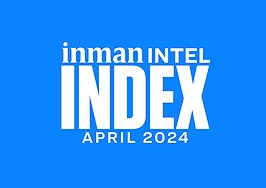In these times, double down — on your skills, on your knowledge, on you. Join us August 8-10 at Inman Connect Las Vegas to lean into the shift and learn from the best. Get your ticket now for the best price.
Black Knight Inc. is reportedly planning to spin off its Empower loan origination system to placate concerns antitrust regulators may have about its pending merger with Intercontinental Exchange Inc. (ICE).
Neither Black Knight, ICE or antitrust regulators would comment on the potential spin-off of Empower, which Reuters reports could be valued at around $400 million to potential buyers including private equity firms.
But opponents of the $13 billion deal are ramping up criticism that the merger would harm consumers by raising the cost of technology that mortgage lenders have come to depend on in order to price, originate, sell and service loans.
While the Federal Trade Commission won’t comment on its ongoing review of the proposed merger of Black Knight and ICE, a top FTC official recently outlined the commission’s reservations about the effectiveness of such past divestitures as remedies to antitrust concerns.
Merger implications
Last May, ICE announced it had reached a definitive agreement to acquire Black Knight — a software, data and analytics company that serves not only mortgage lenders, servicers and secondary market investors, but also real estate professionals, multiple listing services and title insurance providers.
ICE — which already offers its own popular mortgage loan origination system (LOS) Encompass, thanks to its $11.4 billion acquisition of Ellie Mae in 2020 — claimed at the time that the merger would benefit consumers by creating a “life of loan” mortgage platform with cost saving efficiencies.
‘Life of loan’ mortgage platform

ICE envisions building a “life of loan” mortgage platform by integrating technology built by Black Knight with its own solutions. Source: ICE investor presentation.

Jeff Sprecher
“Black Knight’s suite of solutions span across the mortgage workflow, and are highly complementary to ICE’s existing businesses,” ICE Chairman and CEO Jeff Sprecher said on a May 5 call with investment analysts. “By expanding our solution set beyond originations we will be able to deliver a life of loan platform that reduces friction and drives transparency across the workflow. The integration of our solutions will strengthen the overall mortgage ecosystem, bringing more choice and delivering efficiencies for lenders, servicers, partners, and ultimately the end consumer.”
ICE and Black Knight filed the required notifications with antitrust regulators at the Department of Justice and FTC two weeks later.
On June 7, ICE says the FTC sent both companies what’s known as a “second request” for additional information and documents. Of the record-breaking 3,520 deal transactions submitted to the FTC and Justice Department for antitrust review during the year ending Sept. 30, only 65 were subject to second requests for information.
While the FTC won’t say what issues it’s examining, the next day, an industry trade group representing small and mid-sized community-based mortgage lenders wrote Attorney General Merrick Garland a lengthy letter outlining its concerns.
In a June 8 letter to Garland and other federal officials, the Community Home Lenders Association (CHLA) noted that “with the effective end to paper and manual processes for manufacturing mortgage loans, software and related services have become an essential and increasingly important cost component.”
Because lenders use ICE’s Encompass platform to originate about 50 percent of all mortgages, and Black Knight’s Empower accounts for another 10 percent, the combined companies would have “at least 60 percent of the entire origination market,” CHLA claimed.
The dominant position of ICE and Black Knight combined “would have a significant detrimental impact on consumers that are buying a home or refinancing, since essential origination software and related services costs are generally passed along directly to the consumer,” CHLA warned in its letter to Garland — copies of which were also sent to FTC, the Consumer Financial Protection Bureau, and the Federal Housing Finance Agency.
Smaller lenders “would be particularly vulnerable to market concentration in this area, because smaller (independent mortgage banks) lack the loan volume and economies of scale to develop their own proprietary software products or to negotiate on fair terms with a dominant services provider over rates and terms.”
ICE’s deal prospectus was declared effective by the SEC on Aug. 19, and Black Knight stockholders approved the merger on Sept. 21. Under authority granted to them by Congress under the Hart-Scott-Rodino Antitrust Improvements Act of 1976, federal antitrust regulators challenged just 32 of 3,520 proposed mergers last year.
But while ICE maintains that it still expects the deal to close in the first half of this year, critics continue to raise questions about the merger.
Market power and data privacy issues
On Dec. 21, Rep. Maxine Waters — who at the time, was chair of the House Committee on Financial Services — wrote FTC chair Lina Khan asking the commission to review the implications of the merger not only on mortgage originations, but servicing, record keeping, loan pricing, marketing, and data privacy.

Maxine Waters
“Combined, this merger would make ICE the largest mortgage services company in the housing ecosystem based on market capitalization,” the California Democrat wrote. “If this deal closed as proposed, the resulting conglomerate could exert significant market power over loan pricing for consumers, access to and sale of consumer data, and mortgage software pricing.”
On Feb. 6, Federal Financial Analytics Inc. (FedFin) — a think tank hired by a company contesting the merger — published a lengthy research paper urging the FTC to reject the merger, or require ICE to divest itself of “significant” Black Knight assets.
FedFin — which acknowledged that its research was “funded by an entity for which this transaction has raised competition concerns” — estimated the combined companies would command 63 percent of the market for mortgage servicing software, and nearly 60 percent of the market for mortgage origination solutions.
Through ICE’s current ownership of the Mortgage Electronic Registry System (MERS), it already holds a monopoly as the sole provider of a registry tracking changes in mortgage servicing rights and ownership interests, FedFin noted.
MERS– which was formerly operated by Fannie Mae and Freddie Mac, and then by an industry consortium — was acquired by ICE in 2018. Since then, FedFin said MERS registration costs have more than doubled, from $11.95 to $24.95.
“This may seem a small amount and indeed it is, but giant companies promise efficiency as a benefit offsetting market power,” FedFin alleged. “Here, whatever efficiency has been gained accrues solely to ICE.”
FedFin claims that if approved, the merger could also have “dramatic and adverse consequences” for consumer data rights, with MERS data linked to new products and services.
“In addition to having data on the borrowers of every U.S. mortgage to facilitate servicing, ICE plans to use the data it gains via Black Knight to assess borrower economic status on a real-time basis,” the think tank said.
“ICE plans not only to sell these data, but also to license them, essentially taking control over a vast troves of personal consumer data with a wide range of opportunities to cross-sell, market, and even reduce exposures to borrowers across the entire home purchase, mortgage origination, refinancing, and equity extraction sectors,” FedFin predicted.
Short of denying the merger, FedFin recommended that the FTC obtain “advance commitments by ICE to divest significant Black Knight activities that compound ICE’s market power and ability to monetize consumer data.”
If the merger is approved, FedFin also recommended that federal regulators designate the combined companies as a “systemically-important financial institution” (SIFI), subject to capital, liquidity, internal-control, and governance requirements imposed and enforced by the Federal Reserve.
At a minimum, regulators serving on the Treasury Department’s Financial Stability Oversight Council (FCOC) should designate business activities covering mortgages across the entire company to be a “systemic financial market utility,” FedFin said.
FTC position on divestitures
An FTC spokesperson told Inman that “the FTC does not confirm or deny the existence of investigations and all investigations are non-public.”
Most of what’s known publicly about the FTC’s review is what ICE has disclosed to investors.
So it’s unclear if the sale of Black Knight’s Empower loan origination system would address any antitrust issues the merger may have raised — or if Empower is even for sale. Black Knight and ICE declined to comment.

Holly Vedova
But in a Feb. 3 speech, Holly Vedova, the director of the FTC’s Bureau of Competition, said studies have shown that “divestitures have not worked nearly as well as we had hoped” in resolving past antitrust issues.
Such remedies “either failed outright or took much too long to return the affected markets to their pre-merger state,” Vedova said.
Based on those studies, Vedova said the Bureau of Competition will only recommend divestitures “that allow the buyer to operate the divested business on a standalone basis quickly, effectively, and independently, and with the same incentives and comparable resources as the original owner. This type of remedy has a better track record of success and a low risk that it will not maintain or restore the intensity of premerger competition.”
The FTC “will no longer consider remedies where there is heightened risk of failure,” Vedova said. “These include proposals of less than standalone business units, or where there are forward-looking entanglements between the buyer and seller, such as supply agreements, or where there is no strong and independent buyer.”
ICE still expects merger to close
On a Nov. 3 earnings call, ICE CEO Jeff Sprecher said the company “has provided the FTC with extensive information and certified its completeness. And as is often customary, we agreed to extend the FTC’s statutory review period and intend to continue ICE’s cooperation with the FTC staff. Our estimate is that the Black Knight merger will close in the first half of next year.”
While Sprecher didn’t want to get into more specifics, he said ICE’s participation in the FTC review, “coupled with the comprehensive conversations that we’ve been having with our customer base, has further convinced us that our merger will afford significant benefits to US homeowners and industry stakeholders.”
Sprecher made similar assurances on a Feb. 2 call with investment analysts, saying “we continue to believe that this transaction will close during the first half of this year.”
In the company’s 2022 annual report to investors, published the same day, ICE said that under the terms of its merger agreement with Black Knight, “we are not obligated to agree to any structural or behavioral remedy that any government entity may seek to impose.”
ICE and Black Knight each have the power to terminate the merger agreement if it’s not completed on or before May 4, 2023. If there are antitrust issues or other legal issues keeping the merger from closing, the agreement is automatically extended in three-month increments.
If the closing extends beyond November 4, 2023 due to a delay in securing clearance under the Hart-Scott-Rodino Act and neither party terminates the merger agreement, ICE says it would be required to redeem $5 billion in debt the company took on to fund the merger in the form of senior notes, and secure new financing to close the transaction. If the deal doesn’t go through at all, ICE said it could end up owing Black Knight a $725 million termination fee.
If the merger closes, ICE expects its consolidated indebtedness will total approximately $24 billion.
“The success of the merger will depend on, among other things, our ability to successfully integrate the business of Black Knight into the ICE Mortgage Technology business in a manner that facilitates growth opportunities, realizes anticipated synergies, and achieves the projected cost savings, revenue growth and profitability targets of the combined businesses without adversely affecting current revenues and investments in future growth,” the company warned investors.
New leadership at ICE Mortgage Technology

Tim Bowler
ICE announced Tuesday that its mortgage business segment, ICE Mortgage Technology, will be under new leadership on March 1, with Tim Bowler replacing former Ellie Mae executive Joe Tyrrell as president.
Bowler, a former Treasury department official and Goldman Sachs executive, has been with ICE since 2017, heading up a subsidiary responsible for administering several global benchmarks, ICE Benchmark Administration.

Joe Tyrrell
Tyrrell, who was Ellie Mae’s chief operating officer when the company was acquired by ICE in 2020, “is leaving for a new opportunity outside the organization,” the company said in a press release provided to Inman.

Ben Jackson
“In an era of higher interest rates and increased closing fees, when the dream of home ownership remains elusive for too many people, Tim Bowler’s broad expertise in the housing markets lends itself perfectly to ICE’s vision of transforming and digitizing the mortgage industry, making loans more affordable and the process of securing a mortgage faster, easier, less expensive, and more transparent,” said ICE President Ben Jackson, in a statement. “We are grateful to Joe Tyrrell for his broad contributions in growing ICE Mortgage Technology and its predecessor firm, and we wish him all the best in his future endeavors.”
Editor’s note: This story was updated to note that ICE Mortgage Technology will be under new leadership on March 1.
Get Inman’s Extra Credit Newsletter delivered right to your inbox. A weekly roundup of all the biggest news in the world of mortgages and closings delivered every Wednesday. Click here to subscribe.











